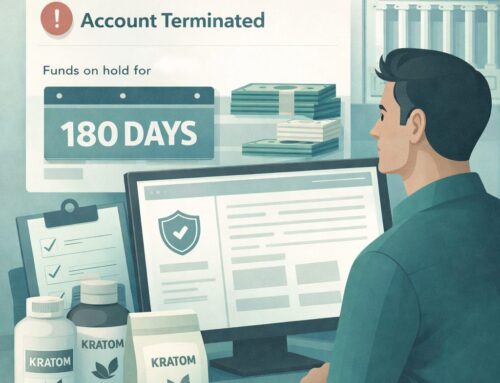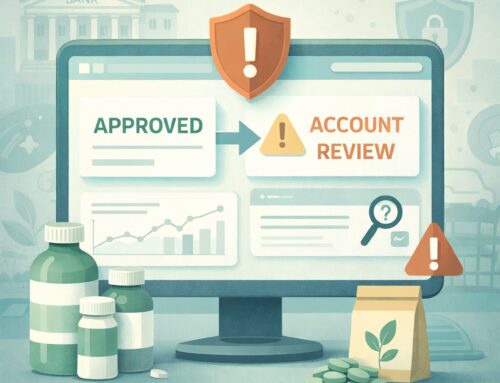The Best Credit Card Processing Solutions for Small Businesses in 2026
Are you a small business owner navigating the world of credit card processing? With countless options available, understanding how to best manage payment processing and merchant services is crucial for growth. In this comprehensive guide, we delve into credit card processing for small businesses, providing insights into tools, fee management, and strategies to enhance customer satisfaction.
Key Takeaways
- Understand the essentials of credit card processing and its significance for small businesses.
- Learn how to simplify payment processing to enhance customer satisfaction and loyalty.
- Identify fee structures and explore strategies to manage costs effectively.
- Discover secure transaction solutions for efficient, reliable business operations.

What Is Credit Card Processing?
At its core, credit card processing is a system that allows businesses to accept and manage payments made with credit cards. It involves tools such as credit card readers, point-of-sale (POS) systems, and online payment gateways. When a customer makes a purchase, their credit card information is securely sent to their issuing bank for verification. Once the transaction is approved, the funds are transferred to the merchant’s business bank account, completing the process efficiently.
How Credit Card Processing Works: A Step-by-Step Overview
To better understand how credit card processing functions, let’s break it down into a simple step-by-step process:
- The customer presents their credit card to make a purchase, either by swiping, inserting, or entering the card information online.
- The merchant’s credit card reader or payment gateway securely captures the card details and sends them to the payment processor.
- The payment processor forwards the transaction data to the appropriate credit card network (e.g., Visa, Mastercard, American Express).
- The credit card network communicates with the issuing bank to verify the availability of funds and the validity of the card.
- The issuing bank approves or declines the transaction based on the customer’s credit card account status and available credit.
- The response is sent back through the credit card network to the payment processor.
- The payment processor relays the approval or decline message to the merchant’s terminal or online payment gateway.
- If approved, the merchant completes the transaction, and the funds are deposited into their business bank account within 1-3 business days.
This entire process usually takes just a few seconds, ensuring a seamless experience for both the merchant and the customer.
The Key Players in Credit Card Processing
To fully grasp the credit card processing ecosystem, it’s essential to understand the roles of the various entities involved:
- Merchant: The business that accepts credit card payments in exchange for goods or services.
- Payment Processor: The company that handles the technical aspects of processing transactions, acting as an intermediary between the merchant, credit card networks, and banks.
- Credit Card Networks: Organizations like Visa, Mastercard, and American Express that facilitate communication between payment processors and issuing banks.
- Issuing Banks: The financial institutions that provide credit cards to consumers and approve or decline transactions based on cardholder account status and available funds.
- Acquiring Banks: The banks that partner with payment processors to enable merchants to accept credit card payments and receive funds from transactions.
Each of these players has a crucial role in ensuring that credit card payments are processed securely, efficiently, and in compliance with industry standards.
Credit vs. Debit Cards: What’s the Difference?
While credit and debit cards may look similar, they function differently when it comes to payment processing. Credit cards allow consumers to borrow money from the issuing bank up to a predetermined credit limit, while debit cards directly deduct funds from the cardholder’s business bank account. As a merchant, it’s important to understand that processing fees may vary depending on the type of card used, with credit cards often having higher fees than debit cards.
Preparing Your Small Business for Credit Card Processing
Before diving into accepting credit card payments, there are several steps you can take to ensure your small business is well-prepared and set up for success.
Invest in Essential Equipment and Software
To process credit card transactions smoothly, you’ll need to invest in the right tools and technology. This may include:
- Credit Card Readers or terminals for in-person transactions.
- A reliable POS system to manage sales, inventory, and customer data.
- An online payment gateway for online transactions.
- Mobile card readers for businesses on the go.
When selecting your equipment and software, consider factors such as compatibility with your existing systems, scalability as your business grows, and the level of customer support provided by the vendor.
Prioritize Compliance and Security Measures
Protecting your customers’ sensitive credit card information should be a top priority. To maintain a secure payment processing environment, focus on the following areas:
- PCI DSS Compliance: The Payment Card Industry Data Security Standard (PCI DSS) is a set of requirements designed to ensure that all companies processing, storing, or transmitting credit card information maintain a secure environment. Adhering to these standards is essential for preventing data breaches and maintaining customer trust.
- Data Encryption: Encrypting credit card data during transmission and storage helps protect it from unauthorized access. Work with a payment processor that utilizes industry-standard encryption technologies to safeguard sensitive information.
- Secure Networks and Systems: Regularly update your software, use strong passwords, and limit access to payment data to only those employees who need it. Additionally, consider implementing firewalls and antivirus software to further enhance your security measures.
- Staff Training: Educate your staff on proper credit card handling procedures, including how to spot suspicious transactions and protect customer information. Regular training sessions can help create a culture of security awareness within your organization.
By prioritizing compliance and security, you can give your customers peace of mind and protect your business from potential financial and reputational damage.
Choosing the Right Credit Card Processor for Your Small Business
With numerous credit card processors available, selecting the best one for your small business can seem overwhelming. To make an informed decision about the best credit card processing options, consider the following factors:
Pricing and Fees
Credit card processing fees can significantly impact your bottom line, so it’s crucial to understand the various fees involved. Some common fees to look out for include:
- Transaction Fees: These are typically a percentage of each transaction amount, plus a flat fee. Look for a processor with competitive rates that align with your business’s sales volume and average transaction size.
- Monthly or Annual Fees: Some processors charge a monthly or annual fee for maintaining your account. Consider whether these fees are worth the services provided and if they fit within your budget.
- Chargeback Fees: If a customer disputes a transaction, you may be subject to chargeback fees. Look for a processor that offers chargeback protection or assistance in managing these situations.
- Termination Fees: If you decide to switch processors, be aware of any termination fees that may apply. Ideally, choose a processor with no long-term contracts or early termination fees.
When comparing pricing, don’t be swayed by processors offering seemingly low rates without disclosing the full range of fees. Transparency is key – look for a provider that clearly outlines all costs upfront, so you can make an accurate comparison and avoid surprises down the line.
Compatibility and Integration
Your credit card processing service should seamlessly integrate with your existing POS system, e-commerce platform, or other business tools. This streamlines your operations and ensures a smooth experience for your customers. Some questions to ask when evaluating compatibility include:
- Does the processor offer integration with my current software and hardware?
- Are there any additional costs or technical requirements for integration?
- Will the processor’s system scale with my business as it grows, and what are the associated monthly fees?
Customer Support and Reliability
In the fast-paced world of small business, having access to responsive, knowledgeable support is crucial. Look for a credit card processor that offers:
- 24/7 customer service via phone, email, or chat
- A dedicated account representative who understands your business.
- Quick response times and resolution of issues
- Comprehensive resources, such as user guides, tutorials, and FAQs, to help you understand your payment processing solution.
The reliability of your processor’s system is equally important. Downtime or technical glitches can result in lost sales and frustrated customers. Research the processor’s track record for system uptime and ask about their backup processes and disaster recovery plans.
Contract Terms and Flexibility
When evaluating credit card processors, carefully review the contract terms and look for flexibility that suits your business needs. Some key considerations include:
- Length of the contract and any automatic renewal clauses
- Early termination fees and how to cancel the service if needed
- Flexibility to adjust your pricing plan as your business grows or your needs change
- Ability to accept a wide range of payment methods, including emerging options like mobile wallets, is essential for a comprehensive processing solution.
Be wary of processors that lock you into long-term contracts with steep penalties for early cancellation. Instead, opt for a provider that offers month-to-month billing and the freedom to adapt as your business evolves.
Specialization in Small Business Support
Not all credit card processors are created equal when it comes to serving small businesses. Some processors focus primarily on larger enterprises, while others tailor their services to the unique needs of small business owners. Working with a processor like VERIFIED Credit Card Processing, which specializes in small business support, can offer several advantages:
- Customized pricing plans that align with your business size and transaction volume
- Dedicated account management and personalized support
- Resources and educational materials specifically designed for small businesses
- Access to innovative tools and features that can help you streamline operations and grow your business
By partnering with a processor that understands the challenges and opportunities facing small businesses, you can gain a valuable ally in your journey to success.
Implementing Credit Card Processing: A Step-by-Step Guide
Once you’ve chosen the best credit card processor for your small business, it’s time to implement the system and start accepting payments. Follow these steps for a smooth setup process:
- Gather necessary documentation: This may include your business license, tax ID number, and bank account information.
- Complete the application: Provide accurate information about your business, including your estimated monthly sales volume and average transaction size. Start your no commitment application by clicking here.
- Set up your equipment: If you’ll be accepting in-person payments, connect your credit card reader or terminal to your POS system. For online sales, integrate your payment gateway with your e-commerce platform.
- Configure your settings: Customize your payment settings, such as whether to accept tips, apply sales tax, or offer receipts.
- Test the system: Before going live, run test transactions to ensure everything is working smoothly.
- Train your staff: Make sure your employees know how to process transactions, handle returns, and troubleshoot common issues.
- Promote your new payment option: Let your customers know that you now accept credit cards through in-store signage, your website, and social media channels.
By following these steps and working closely with your chosen credit card processor, you can start accepting payments quickly and efficiently.
Optimizing Your Credit Card Processing Costs
While credit card processing fees are a necessary cost of doing business, there are several strategies you can employ to optimize your expenses over time:
- Regularly review your statements: Carefully examine your monthly processing statements to identify any unexpected fees or charges.
- Negotiate with your processor: If you’ve been processing a steady volume of transactions, consider reaching out to your credit card processing providers to discuss lower interchange fees.
- Optimize your transaction mix: Encourage customers to use debit cards or opt for cash payments when possible (possibly by introducing a dual-pricing/cash discount option and avoid all your processing fees), as these typically incur lower fees than credit card transactions.
- Batch your transactions: Instead of processing each transaction individually, batch them together at the end of the day to minimize per-transaction fees.
- Avoid chargebacks: Implement clear return and refund policies, and promptly address any customer concerns to reduce the risk of chargebacks and associated fees.
By proactively managing your credit card processing costs, including hidden fees, you can keep more of your hard-earned revenue and reinvest it into growing your business.
Advanced Strategies for Growing Your Small Business with Credit Card Processing
Beyond the basics of accepting payments, credit card processing can also offer powerful tools for growing your small business. Consider these advanced strategies:
Implement a Customer Loyalty Program
A well-designed loyalty program can encourage repeat business, increase customer spending, and foster brand advocacy. Many credit card processors offer integrated loyalty features that allow you to enhance your payment processing solution.
- Award points for purchases
- Offer tiered rewards based on spending levels
- Send targeted promotions and discounts to loyal customers
- Track customer behavior and preferences for personalized marketing
By leveraging your credit card processing data, you can create a loyalty program that truly resonates with your audience and drives long-term growth.
Leverage Payment Data for Business Insights
Your credit card transactions hold valuable information about your customers’ spending habits, preferences, and behaviors. By analyzing this data, you can gain insights that inform your business decisions, such as:
- Identifying your most popular products or services
- Understanding peak sales times and seasonality
- Segmenting your customer base for targeted marketing campaigns
- Forecasting future sales and inventory needs
Many credit card processing companies offer reporting and analytics tools that make it easy to visualize and interpret your payment data. By leveraging these insights, you can optimize your operations, marketing, and growth strategies.
Offer Multiple Payment Options
In today’s diverse payment landscape, offering multiple ways to pay can be a significant competitive advantage. In addition to traditional credit and debit cards, consider accepting:
- Mobile wallet payments (e.g., Apple Pay, Google Pay)
- Contactless payments (e.g., tap-to-pay credit cards)
- ACH or e-check payments for larger transactions
By accommodating your customers’ preferred payment methods, you can improve the checkout experience, reduce friction, and potentially increase sales.
Expand into E-commerce
If you’re currently only accepting in-person payments, expanding into e-commerce can open up new revenue streams and help you reach a wider audience. Many credit card processors offer integrated online payment gateways that allow you to:
- Securely accept payments on your website
- Sync online and in-store sales data for unified reporting
- Offer subscription or recurring payment options
- Implement one-click checkout for faster transactions
By leveraging your credit card processor’s e-commerce tools, you can seamlessly bridge the gap between your physical and digital storefronts, creating a cohesive brand experience for your customers.
Conclusion
Credit card processing is a powerful tool for small businesses looking to streamline operations, enhance customer satisfaction, and drive growth. By understanding the fundamentals of payment processing, choosing the right processor for your needs, and implementing advanced strategies, you can unlock the full potential of this essential business function.
At VERIFIED Credit Card Processing, we specialize in providing tailored solutions for small businesses like yours. Our transparent pricing, industry-leading security, and exceptional customer support ensure that you can accept payments with confidence and focus on what matters most – growing your business.
Get Started and Accept Credit Cards
Ready to take your small business to the next level with seamless credit card processing? Contact VERIFIED Credit Card Processing today to learn more about our specialized solutions and start accepting payments with ease. Our expert team is here to guide you every step of the way and help you find the best fit for your unique needs. Don’t wait – start processing and growing today!
Frequently Asked Questions about Payment Processing for Small Business
- What is the best credit card processor for a small business?
The best credit card processor for a small business depends on various factors, such as your industry, sales volume, and specific needs. VERIFIED Credit Card Processing offers tailored solutions for small businesses, with competitive pricing, robust security, and exceptional customer support. - How much does credit card processing cost for small businesses?
Credit card processing costs can vary depending on your processor, transaction volume, and average ticket size. Generally, you can expect to pay a percentage of each transaction (usually 1.5-2.5%) plus a flat fee per transaction ($0.10-$0.30). Some processors may also charge monthly or annual fees, PCI compliance fees, or chargeback fees. VERIFIED Credit Card Processing offers transparent, competitive pricing tailored to your small business needs. - How can I lower my credit card processing fees as a small business?
There are several strategies to lower your credit card processing fees, such as:- Negotiating with your processor for better rates based on your transaction volume
- Encouraging customers to use debit cards or cash for smaller transactions
- Minimizing chargebacks by clearly communicating your policies and quickly resolving customer disputes
- Choosing a processor like VERIFIED Credit Card Processing that specializes in cost-effective solutions for small businesses
- Is it safe to accept credit card payments as a small business?
Yes, accepting credit card payments is safe when you follow proper security protocols and partner with a reputable payment processor. Ensure that your business is PCI compliant, use encrypted card readers and payment gateways, and train your staff on secure handling of customer data. VERIFIED Credit Card Processing prioritizes the security of your transactions with industry-leading fraud prevention and data protection measures. - What equipment do I need to start accepting credit card payments?
To accept credit card payments, you’ll typically need:- A credit card reader or terminal for in-person transactions
- A POS system to manage sales and inventory
- An online payment gateway for e-commerce transactions
- A reliable internet connection to process payments
Many processors, including VERIFIED Credit Card Processing, offer affordable equipment bundles or free credit card readers to help you get started quickly.
- What should I do if a customer disputes a charge?
If a customer disputes a charge, act quickly to resolve the issue and prevent a chargeback. Gather any relevant documentation, such as receipts or shipping information, and respond promptly to the dispute through your credit card processor’s chargeback management system. Maintain open communication with the customer and work to find a fair resolution. If you need assistance, VERIFIED Credit Card Processing offers chargeback support services to help you navigate the process and protect your business.
In today’s fast-paced, digital world, accepting credit card payments is no longer optional for small businesses – it’s a necessity. By partnering with a trusted credit card processor like VERIFIED Credit Card Processing, you can tap into the power of seamless, secure payment processing to elevate your customer experience, streamline your operations, and unlock new growth opportunities.
Don’t let the complexities of credit card processing hold your small business back. Take control of your payment processing today by contacting VERIFIED Credit Card Processing. Our friendly, knowledgeable team is ready to answer your questions, guide you through the setup process, and provide ongoing support as your business grows. With our tailored solutions, you can start accepting credit card payments with confidence and focus on what you do best – serving your customers and building your dream business.
Continue Reading
Let us discover your best options.
Either submit the form below or get in touch with an agent now (415) 835-4135.
Applying is risk-free; we send your details to underwriters to find the best fit and contact you with the best option or request more details, with no credit checks or commitments.











